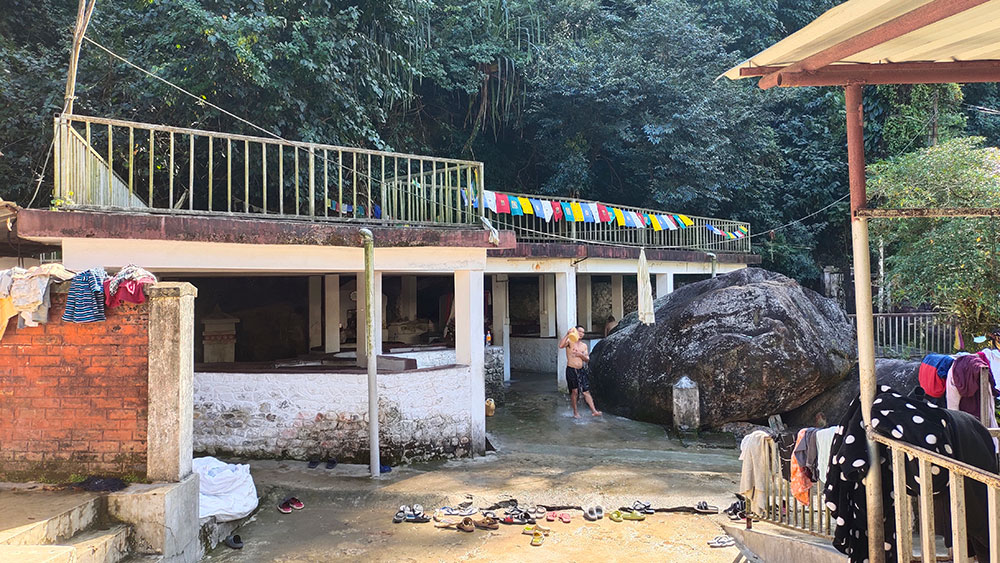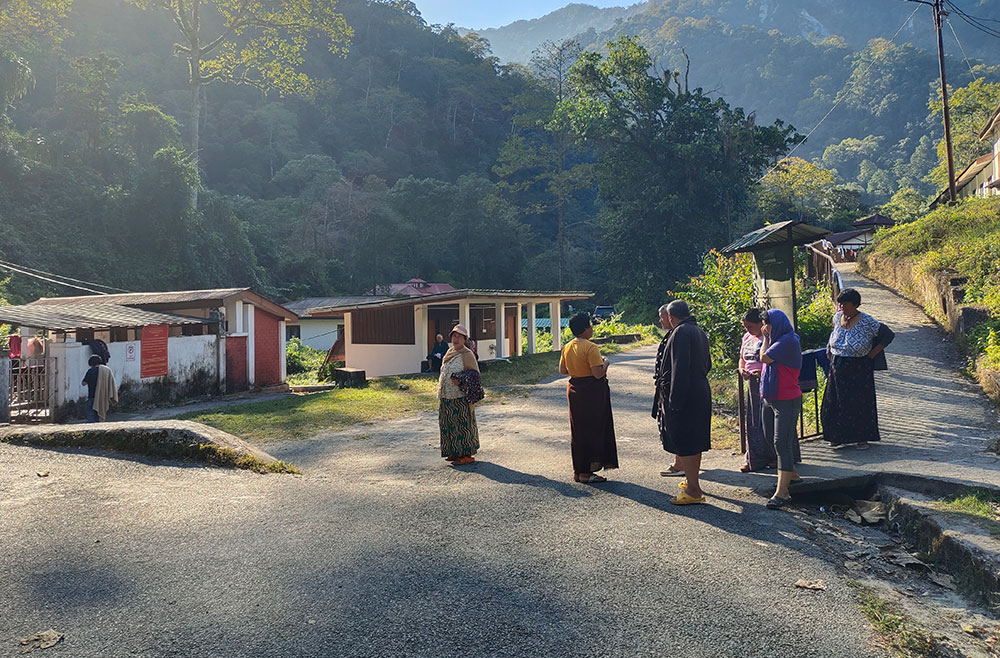Lhakpa Quendren
As the clock inches toward 11:30am, Dorji eagerly awaits his turn to soak in the Gelephu Tshachhu (hot spring), while the women wrap up their first round of soaking for the day.
Seventy-year-old Dorji from Kyichu in Paro visits Gelephu Tshachhu every winter to find relief for his joint pains, with this year marking the seventh year of continuing this tradition.
“We planned for the tshachhu after the harvest. Working in the fields gives me joint pains, and the hot spring has been very helpful in easing these pains. It has improved my health condition,” said Dorji, who is part of a large group from Paro that came for a 12-day soaking.

Many people from across the country visit Gelephu Tshachhu annually
“I could not visit the facility for three years during the pandemic, but I will continue to come every year,” he said. “The hot spring provides healing for joint pains and diabetes. Now, it also benefits diseases resulting from exposure to cold.”
Another visitor, 54-year-old Domang Gyeltshen from Yurung in Pemagatshel, said that accessing the hottest pond is challenging as many people rush to go for it. “I went to Gasa Tshachhu, but it did not help to cure my disease. So, after some friends recommended it, I planned to visit Gelephu. This is the first time, but I will continue to come every year.”
With the Tshachhu season at its peak, Gelephu Tshachhu continues to draw enthusiasts from far and wide. The on-site rooms have remained occupied since September, with some visitors resorting to setting up tents.
The crowd, however, has decreased this year compared to recent years, according to the residents. The facility mostly remains empty during the summer, and most business establishments remain closed.
“The facility gets filled during the peak season that usually starts from November until February, bringing economic benefits to us even though the crowds are not as many as in the past,” said a restaurateur.
Visitors said that while the government accommodation facility at the site provides affordable lodging at Nu 200 per night, inadequate drinking water facilities have led some visitors to choose private hotels, which charge over Nu 800 per night.
The infrastructure at the site underwent renovations during the pandemic, including the construction of two new additional ponds a few metres below the existing pond.
However, the new ponds failed to attract visitors and were later converted into a guest house, as the hot water cooled quickly upon reaching the ponds.
Today, visitors are taking their turns to soak in the hot spring, with separate timing of one and a half hours each, for both men and women to ensure everyone gets to use the facility.


